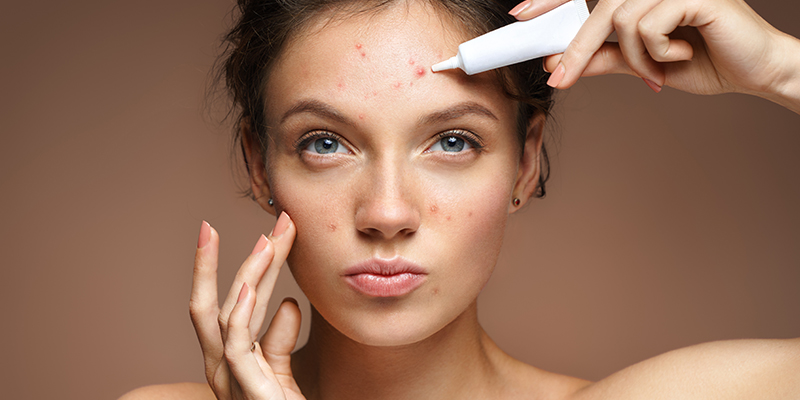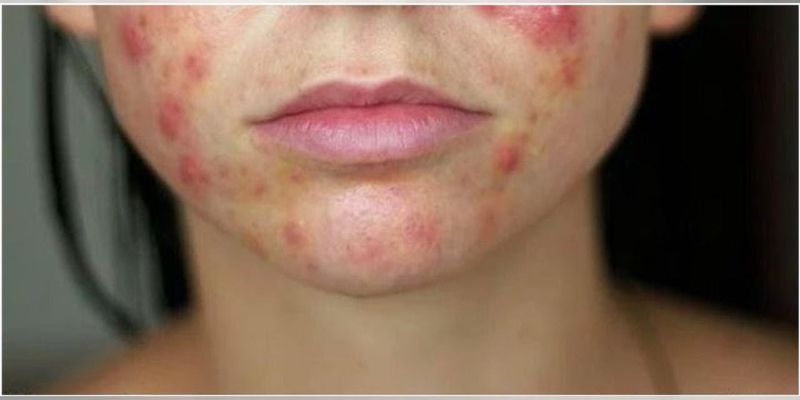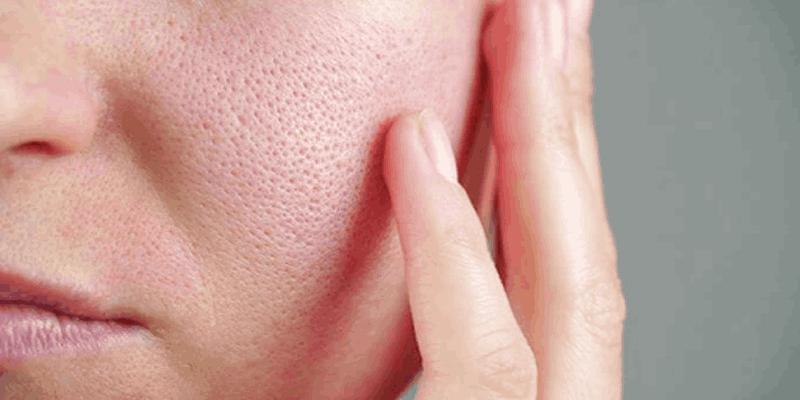Are you dealing with a condition known as hidradenitis suppurativa on your face? If so, you are not alone. In the United States alone, more than half a million people have this skin disorder – which is growing daily.
Hidradenitis suppurative (HS) can manifest in many ways, causing irritation, reddening of the affected area(s), bumps, and cysts on or near hair follicles, which often become infected or filled with pus.
Fortunately for those living with HS on their faces, natural remedies and medical treatments are available to keep it under control. Get all the details about maintaining your health and managing HS flare-ups in this blog post!
What is Hidradenitis Suppurativa (HS)?

Hidradenitis Suppurativa, also known as Acne Inversa, is a skin condition that affects the sweat glands. It can cause painful and inflamed lumps, cysts, or abscesses to form on or near hair follicles on the skin.
Although HS is most common in areas such as the armpits, thighs, and groin, it can also affect other body parts, including the face.
For those living with HS on their face, finding a way to manage and control the condition is important. The good news is that natural remedies and medical treatments are available to manage this skin disorder.
Natural remedies such as dietary changes, stress reduction techniques, and topical ointments may be effective for some people. Medical treatments such as antibiotics and steroid injections may be necessary for more severe cases to reduce the inflammation and bacterial infection associated with HS.
Causes of HS on the face

Genetics
It is believed that genetics play a role in the development of HS on the face. Some people may be predisposed to developing this condition if it runs in their family.
Hormonal Changes
Hormonal changes, such as those associated with puberty and menopause, can also increase sebum production, leading to HS on the face.
Obesity
Being overweight or obese can also put people at a higher risk of developing HS on the face. This is because extra weight can create more pressure on facial skin, making it more prone to breakouts and infection.
Therefore, maintaining a healthy weight and lifestyle may help reduce the risk of developing HS on the face.
Common Symptoms of HS on the Face
Some of the common symptoms associated with HS on the face include:
• Reddening of the affected area(s)
• Bumps and cysts around hair follicles that may become infected or filled with pus
• Painful, inflamed lumps in some cases
• Swelling in the facial area.
• Skin discoloration.
If you are experiencing any of these symptoms, seeking medical advice as soon as possible is important to determine the best course of action.
Diagnosis and Treatment of HS on the Face
Diagnosis
To accurately diagnose HS on the face, your doctor must take a detailed medical history and perform a physical examination. Your doctor may also request that you have imaging tests, such as X-rays or a CT scan, toto determine how severe the condition is.
Treatment
The treatment for HS on the face will depend on the severity of your symptoms. Natural remedies such as dietary changes and stress reduction techniques may be effective for mild symptoms.
In more severe cases, medical treatments such as antibiotics or steroid injections may be necessary to reduce inflammation and bacterial infection associated with the condition.
Surgery may also be recommended in some cases.
It is important to discuss all of your options with your doctor before starting any treatment plan. With the right knowledge and support, managing HS on the face effectively is possible.
How to Reduce Flare-Ups of HS on the Face
Diet
Certain foods may trigger HS flare-ups, so it is important to identify and avoid these triggers. Keeping a food diary can help you determine which foods may be causing your flare-ups and any other lifestyle factors contributing to the condition.
Medication
Your doctor may prescribe antibiotics or steroid injections to help reduce inflammation and bacterial infection associated with HS on the face. Following your doctor’s instructions carefully when taking any medications is important.
Topical Treatments
Topical treatments such as ointments, lotions, creams, or gels can help reduce the symptoms of HS on the face. However, checking with your doctor before using any over-the-counter products is important to ensure they suit you.
Stress Reduction
Reducing stress levels can positively impact HS flare-ups, so finding ways to relax and manage your stress levels is important. Practicing yoga, meditation, or other relaxation forms can help reduce stress and improve overall health.
By following the right course of action, managing HS on the face effectively and reducing flare-ups is possible. With the right knowledge and support, you can find a way to keep your condition under control so you can enjoy life without fear of an HS flare-up.
Tips to Manage Stress and Anxiety Associated with HS on the Face
Positive Thinking
Focusing on the positives in life can help to reduce stress and anxiety associated with HS on the face. Stay positive and focus on all your achievements, however small.
Exercise
Regular exercise is a great way to release endorphins, which are known to improve mood and relieve stress. Exercise can also help reduce flare-ups as it helps keep blood sugar levels under control.
Relaxation Techniques
Relaxation techniques such as mindfulness or yoga can effectively manage stress and anxiety associated with HS on the face. Taking time out for yourself each day can help you to feel more relaxed and in control of your condition.
Support Network
A strong support system can make a huge difference in managing stress and anxiety associated with HS. Talk to family, friends, or others living with HS – you may be surprised by how much comfort you can get from those around you.
By following these tips, you can effectively manage stress and anxiety associated with HS on the face. With the right knowledge and support, you can find ways to keep your condition under control so that you can focus on enjoying life without fear of an HS flare-up.
FAQs
Do HS scars go away?
The answer to this question depends on the severity of your HS and how you choose to treat it. In some cases, exfoliating the skin and using aloe vera or tea tree oil products may help reduce inflammation and scarring.
Is there a cure for HS?
Currently, there is no known cure for hidradenitis suppurative (HS). However, early diagnosis and prompt treatment can help reduce the overall symptoms and prevent further outbreaks.
Additionally, lifestyle changes such as avoiding hot showers or baths, eating a healthy diet rich in antioxidants, maintaining a regular exercise routine, and managing stress levels may also be beneficial.
What should I avoid if I have HS on my face?
It is best to avoid any products that contain fragrances or harsh chemicals, as these could cause further irritation or inflammation of the skin. Additionally, you should not wear tight clothing around the affected area, as this can increase friction and discomfort. Finally, it is important to regularly cleanse the skin with a mild, non-irritating soap and water solution.
Conclusion
Having HS on your face can be difficult and uncomfortable, but hope exists. With the combination of natural remedies and medical treatments, you can keep your condition under control and improve your quality of life.
Feel free to speak with a dermatologist or other qualified healthcare professional if you are having difficulty managing HS on your face. They will be able to provide advice and guidance tailored specifically for you so that you can get back to living a normal life without the discomfort of HS. Thank you for reading!

What is Subchondral Sclerosis
Dec 31, 2023

Health Benefits of Saffron
Oct 31, 2023

Best Sleep Trackers
Dec 14, 2023

What is Vitamin B12
Nov 18, 2023

Healthy Beans and Legumes You Should Try
Oct 04, 2023

How to Close Your Pores
Nov 16, 2023

Causes of Anxiety 9 Causes You Might Not Expect
Dec 17, 2023

An In-depth Exploration of Your Weight Training Journey
Mar 05, 2024



